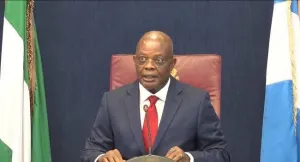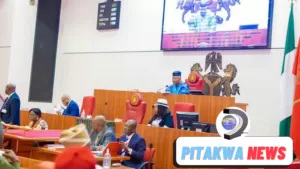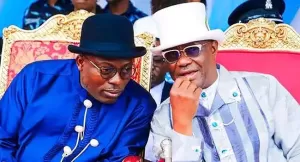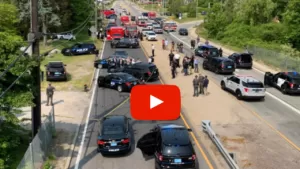Wike Open to Forgiveness if Suspended Rivers Governor Fubara Seeks Reconciliation
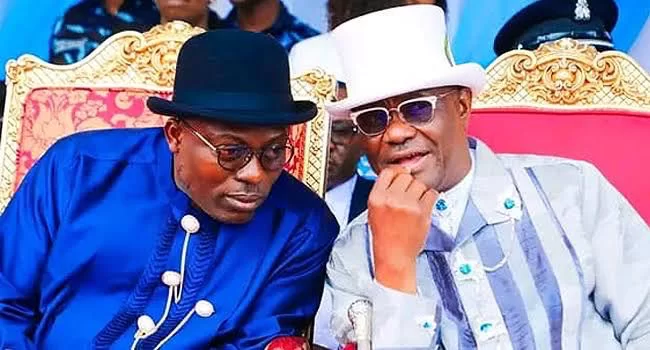
In a recent statement that has stirred political discourse in Nigeria, Nyesom Wike, the Minister of the Federal Capital Territory (FCT), expressed his willingness to forgive Siminalayi Fubara, the suspended Governor of Rivers State, should Fubara personally seek forgiveness. The comment, made amid ongoing tensions between the two political figures, underscores a deep-seated rift that has dominated headlines in Rivers State and beyond.
Background of the Wike-Fubara Rift
The political feud between Wike and Fubara, once allies, has been a focal point in Rivers State politics. Wike, a former governor of Rivers State and a prominent figure in the People’s Democratic Party (PDP), played a significant role in Fubara’s rise to the governorship in 2023. However, their relationship deteriorated rapidly, reportedly due to disagreements over political control, governance priorities, and loyalty.
The conflict escalated when Fubara faced suspension as governor, a development linked to legal and political challenges allegedly influenced by Wike’s camp. The crisis has polarized Rivers State, with factions aligning behind either Wike or Fubara, and has drawn attention from national political figures and regional stakeholders seeking to mediate.
Wike’s Statement on Forgiveness
Speaking publicly, Wike addressed appeals for reconciliation, including one from Government Ekpemupolo, popularly known as Tompolo, a prominent Niger Delta leader. Wike clarified that Fubara had not approached him to apologize for any perceived wrongs. “If suspended Governor Fubara comes to me for forgiveness, I’ll forgive him,” Wike stated, emphasizing that reconciliation hinges on Fubara taking the initiative to seek amends.
Wike’s remarks suggest a conditional openness to resolving the conflict but also highlight his stance that Fubara bears responsibility for the rift. The FCT Minister’s tone reflects both a willingness to move forward and a firm expectation of contrition from his former protégé.
Public and Political Reactions
Wike’s statement has elicited varied responses. On platforms like X, users have debated the implications of his comments, with some viewing them as a strategic move to maintain political dominance in Rivers State, while others see it as a genuine olive branch. Supporters of Fubara argue that Wike’s demand for an apology is an attempt to publicly humiliate the suspended governor, further complicating reconciliation efforts.
Political analysts note that Wike’s position as FCT Minister, appointed by President Bola Tinubu, gives him significant influence, which he has leveraged in Rivers State’s political landscape. The feud has also raised questions about the stability of the PDP in the state and its ability to navigate internal divisions ahead of future elections.
Broader Context: Rivers State Political Crisis
The Wike-Fubara conflict is part of a broader power struggle in Rivers State, a key oil-producing region with significant economic and political importance. The state has witnessed legal battles, defections, and protests as factions vie for control. Efforts by elders, traditional rulers, and regional leaders like Tompolo to broker peace have yet to yield a lasting resolution.
Fubara’s suspension as governor, currently under legal contention, has further complicated the situation. His supporters claim the suspension is politically motivated, while Wike’s allies argue it reflects Fubara’s alleged mismanagement and disloyalty.
What Lies Ahead?
As of April 18, 2025, no public indication suggests that Fubara has reached out to Wike for reconciliation. The absence of direct communication between the two leaders leaves the door open for continued political maneuvering. Observers speculate that external mediators, including PDP leaders and Niger Delta stakeholders, may intensify efforts to bridge the gap, especially given Rivers State’s strategic importance.
Wike’s statement, while framed as an offer of forgiveness, also serves as a reminder of his enduring influence in Rivers politics. For Fubara, the decision to seek forgiveness could carry significant political costs, potentially weakening his standing among supporters who view him as a victim of Wike’s dominance.
Conclusion
The Wike-Fubara saga remains a defining issue in Nigerian politics, encapsulating themes of loyalty, power, and reconciliation. Wike’s conditional offer to forgive Fubara places the onus on the suspended governor to take the first step, but the broader dynamics of their conflict suggest that resolution will require more than a personal apology. As Rivers State navigates this turbulent period, the actions of both leaders—and the responses of their allies and mediators—will shape the state’s political future.
